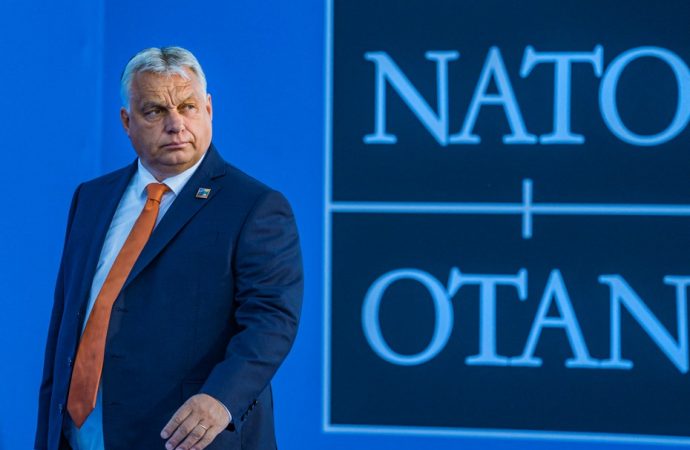Introduction In a notable diplomatic development, Hungary is making strides towards approving Sweden’s bid to join the North Atlantic Treaty Organization (NATO). This potential alliance between Hungary and Sweden carries significant implications for the geopolitical landscape in Europe. To unravel the strategic dimensions of this diplomatic move, we turn to Dr. Elena Global Insights, an
Introduction
In a notable diplomatic development, Hungary is making strides towards approving Sweden’s bid to join the North Atlantic Treaty Organization (NATO). This potential alliance between Hungary and Sweden carries significant implications for the geopolitical landscape in Europe. To unravel the strategic dimensions of this diplomatic move, we turn to Dr. Elena Global Insights, an international relations expert with a keen focus on NATO dynamics and European security.
Hungary’s Diplomatic Shift

This image is taken from google.com
Hungary’s willingness to consider approval of Sweden’s NATO bid marks a significant departure from past diplomatic stances. Dr. Elena Global Insights points out that such shifts are indicative of the evolving geopolitical considerations within the NATO alliance and the broader European security framework.
Comparative Table: Notable NATO Enlargements
| Enlargement Partners | NATO Accession Process | Impact on Regional Dynamics |
|---|---|---|
| Hungary and Czech Republic | Early post-Cold War expansion. | Strengthened security cooperation and integration into NATO structures. |
| Sweden’s Potential Accession | Ongoing accession discussions. | Potential bolstering of NATO’s northern flank, enhanced regional security. |
| Baltic States | NATO membership in 2004. | Enhanced security in the Baltic region, fostering economic and political ties. |
Strategic Implications for NATO
Sweden’s potential accession to NATO, with Hungary’s approval, holds strategic importance for the alliance. Dr. Elena Global Insights notes that NATO’s expansion into the Nordic region would not only enhance its northern flank’s defense capabilities but also foster greater collaboration with Sweden, known for its contributions to peacekeeping and international security.
Balancing Act for Sweden

This image is taken from google.com
For Sweden, the prospect of NATO membership entails navigating a delicate diplomatic balance. Dr. Elena Global Insights emphasizes that while NATO membership could enhance Sweden’s security posture, it also raises considerations about managing relationships with non-NATO neighbors, particularly Russia.
Comparative Table: Impact of NATO Accession on Member States
| NATO Member State | Security Benefits | Diplomatic Challenges |
|---|---|---|
| Poland | Enhanced security through NATO’s collective defense. | Strained relations with Russia, requiring delicate diplomacy. |
| Sweden (Potential Accession) | Strengthened defense capabilities and regional security. | Balancing ties with non-NATO neighbors, particularly Russia. |
Conclusion:
Hungary’s move towards approving Sweden’s NATO bid signifies a pivotal moment in European diplomacy and security. Dr. Elena Global Insights provides valuable insights into the strategic considerations for both nations and the broader implications for NATO’s evolving dynamics. As Sweden inches closer to potential NATO membership, the geopolitical chessboard in Europe undergoes another significant shift.
















